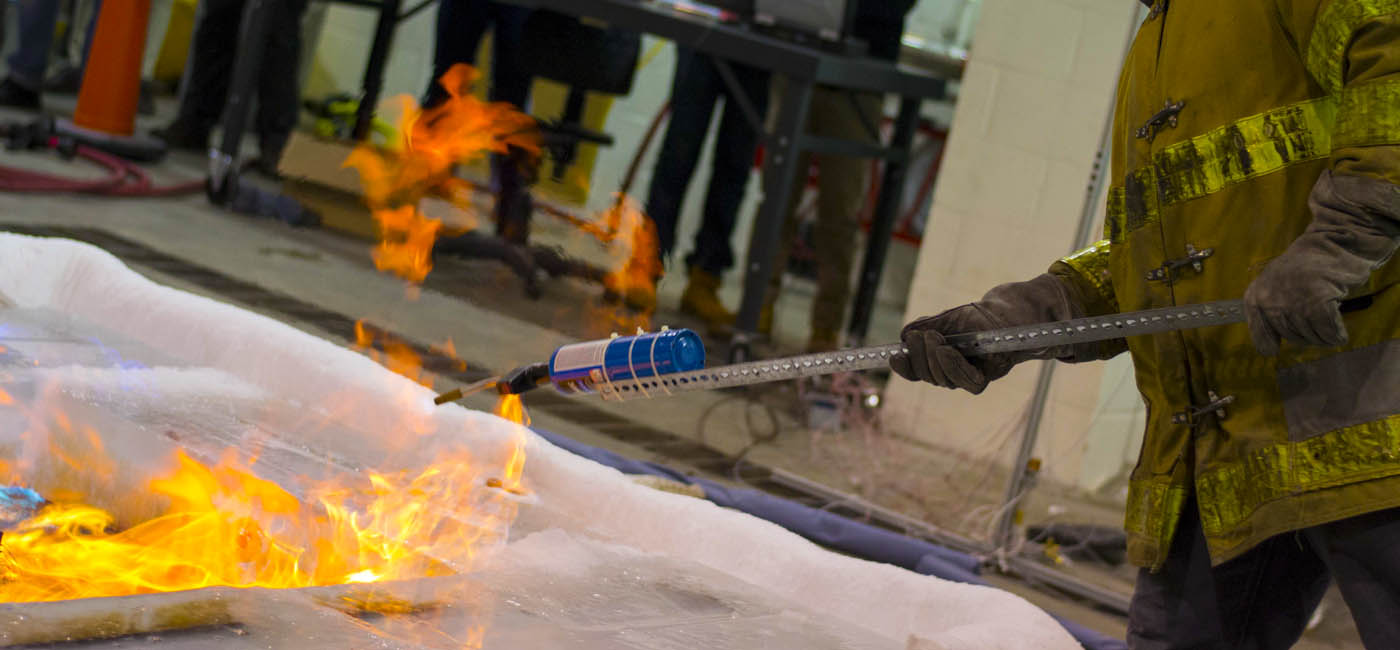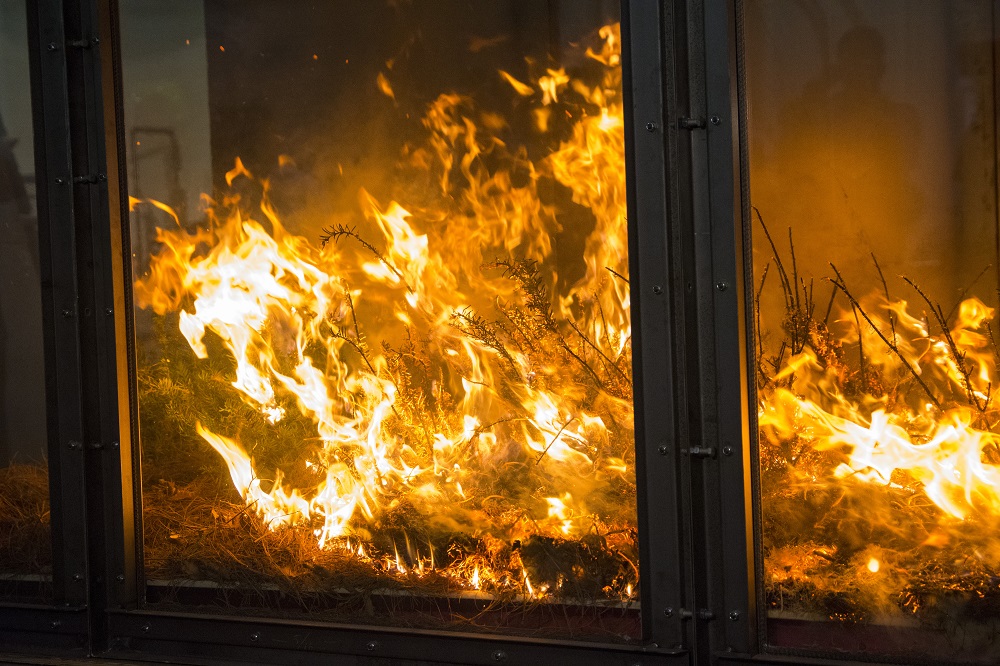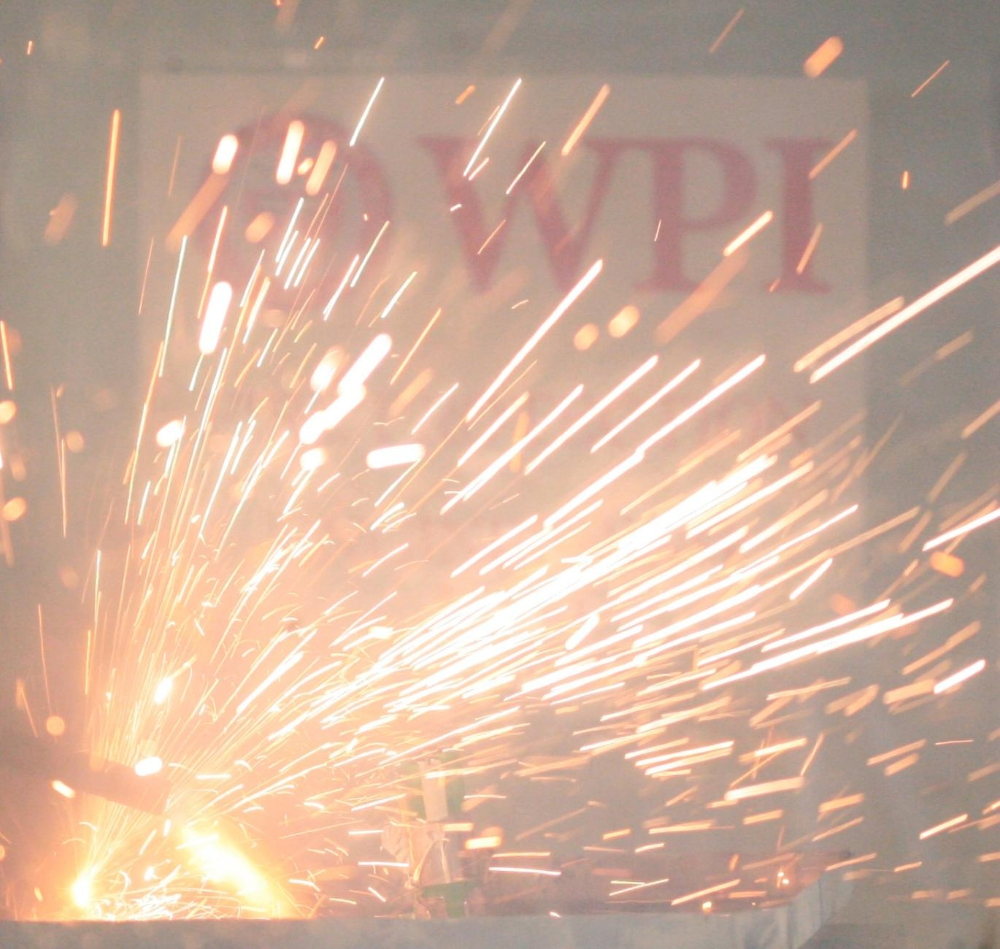WORCESTER, Mass.–Although dust buildup is among the most serious and common fire and explosion hazards in a range of industries, little is known about how dust ignites or how dust explosions propagate, according to Ali Rangwala, assistant professor of fire protection engineering at Worcester Polytechnic Institute (WPI). Rangwala recently received a five-year, $429,000 CAREER Award from the National Science Foundation (NSF) to close this knowledge gap by conducting a groundbreaking scientific study of dust layer ignition and flame propagation in dust clouds. The CAREER Award is the most prestigious NSF award for young faculty members. WPI counts 18 CAREER Award winners among its current faculty.
The importance of this line of study was made evident to the nation in February 2008 when a massive explosion and fire at the Imperial Sugar Co. plant in Port Wentworth, Ga., took 13 lives and sent 40 other people to the hospital. The culprit was dust. Shaken loose by employees pounding on a silo, a cloud of sugar dust drifted toward a moving conveyor belt, which ignited it. The accident highlighted the extreme danger posed by dust that accumulates in many industrial settings, from coal mines, to saw mills, to factories that make everything from plastics to corn-based ethanol to pharmaceuticals.
While a number of studies of dust explosions have been conducted over the years, none have been aimed at developing a fundamental understanding of the physics of the phenomenon, Rangwala says. In particular, his study will examine how such factors as the size of dust particles, their chemical make-up, the density of dust clouds, and the heat of combustion (the heat released when a substance burns) affect how likely a dust cloud is to ignite, how rapidly it will burn, and how the fire will spread. Other studies will look at the risks associated with dust as it accumulates in thick layers, particularly in corners. Fires can smolder in dust layers for long periods before erupting, often triggering dust explosions.
Rangwala will study dust combustion with small-scale laboratory experiments using novel experimental designs and, in many cases, equipment developed for this study. "We will be creating a new experimental platform here at WPI that will allow us to look at the mechanics of fire phenomenon," Rangwala said. "We will be carrying out experiments that have never been attempted before. The practice of conducting small-scale lab experiments and then scaling up from the results is common in fields like aeronautical and civil engineering, but is new to fire protection engineering."
The results of Rangwala’s experiments will become the basis for more robust models that will help assess and predict the risks associated with dust accumulation and ultimately lead to better and safer practices for the design and maintenance of industrial facilities that generate dust. "I am also hopeful that this research program will help effect a shift away from the empirical, engineering-based models commonly used in fire safety and engineering toward models derived from analysis and experimentation," Rangwala says.
In addition to funding his research, the CAREER Award will enable Rangwala to promote interest in careers in fire protection engineering and fire research through educational programs at the college and pre-college levels. Working with WPI’s Office of K-12 Outreach Programs, he will develop a three-week summer program in which high school students will explore fire safety problems and learn about fire and explosion phenomenon through laboratory exercises. At the college level, Rangwala will build on WPI’s success with project-based education and develop an undergraduate project center at the University of Edinburgh in the United Kingdom, which is recognized internationally for its work in fire protection engineering. There, students from WPI, Edinburgh, and universities in France and India will cooperate on cutting-edge projects in fire research.




